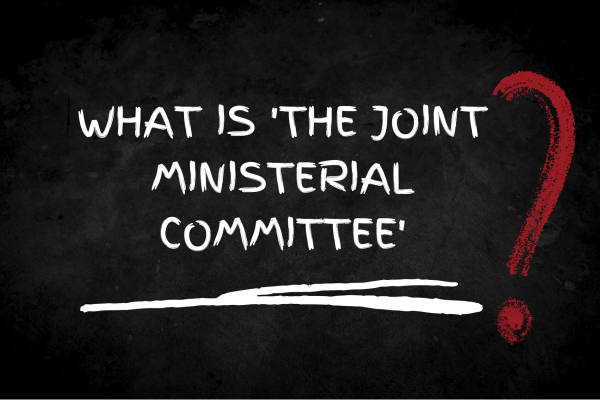The Joint Ministerial Committee (JMC) is the UK’s primary forum for intergovernmental relations. It brings together the UK, Scottish, and Welsh Governments and the Northern Ireland executive. The JMC was established by a ‘memorandum of understanding’ in 1999, following the introduction of devolution. The memorandum set out the functions of the JMC which include information sharing, consultation, and cooperation on areas of mutual interest.
When it was set up, the JMC met in different formats. In its plenary format (the JMC P), it brings together the leaders of the four governments, chaired by the Prime Minister. Although it was supposed to meet once a year, its meetings have been much less frequent and more ad hoc. The JMC met more frequently – three or four times a year – in its European format (the JMC E), when it discussed issues on the agenda ahead of European Council meetings, where the UK Government represented the whole of the UK. Now that the UK has left the European Union, the JMC E has been discontinued. After the 2016 Brexit referendum, a special sub-committee was set up called the JMC (EU negotiations, or JMC EN) with the intention of giving the devolved governments an opportunity to input into Brexit negotiations. In the event, the JMC EN offered few meaningful opportunities to influence the Brexit process.
Compared to similar forums in federal countries, the JMC is quite limited in its activities. It is used mainly for information-sharing and discussion, rather than making decisions. In 2010, a protocol was introduced, setting out procedures to help prevent and resolve disputes. However, this process is weighted towards the UK Government, which chairs the dispute resolution process, despite often being the focus of the dispute. The former First Minister of Wales, Carwyn Jones, complained that this ‘leaves the final decision-making responsibilities with the UK Government, empowered in what we might call its “federal” capacity, to mark its own homework’.
Because there is no devolution in England, the UK Government wears two hats in meetings of the JMC: it is both the government of the UK as a whole and the de facto government of England. But concerns have been raised by some political leaders in England, especially the mayors of city regions like London and Manchester, that their interests are not properly represented, and they have argued for a greater say.
There have been many calls for reform of the JMC, including from parliamentary committees in the House of Commons, House of Lords, and the devolved institutions. The Welsh Government, which has been at the forefront of demands for change, proposed replacing the JMC with a Council of Ministers, modelled on the EU Council, with robust decision-making and dispute resolution procedures.
Further reading:

